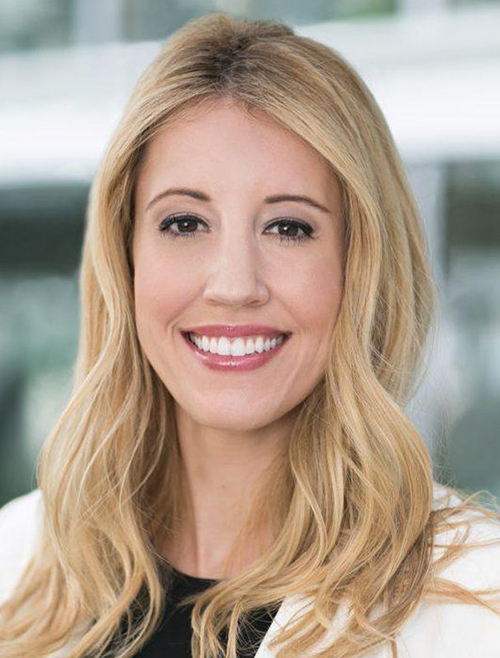Direct-to-Consumer Clinical Laboratory Test Developer, EverlyWell, Receives $1 Million in Funding from Shark Tank Investor
Direct-to-consumer medical laboratory testing company gets a major shot in the arm as developers find ready investors and increasing consumer demand
Clinical laboratory tests, usually performed without fanfare, were thrust into the limelight during a recent episode of Shark Tank, an American reality TV show on which aspiring entrepreneurs compete for the attention and partnership funds of various investors.
EverlyWell, a direct-to-consumer (DTC) company that offers at-home lab tests without lab visits or doctor referrals, obtained a $1-million line of credit from Lori Greiner, one of Shark Tank’s participating entrepreneurs, according to MobiHealthNews. EverlyWell has consumers collect their own specimens at home, which are then sent to a medical laboratory testing facility.
Based in Austin, Texas, EverlyWell was founded in 2015 by Julia Taylor Cheek, CEO, with an aim to “make lab tests accessible, simple, and meaningful,” according to a news release. Cheek is also a Venture Partner with NextGen Venture Partners and formerly the Director of Strategy and Operations with the George W. Bush Institute.
“It’s incredible for the industry that we were selected and aired on a show like Shark Tank. It really shows the intersection of what’s happening in consumer healthcare and the high cost in healthcare and that people are really responding to new solutions,” Cheek told MobiHealthNews.
“I think the product is brilliantly crafted,” Greiner stated during the episode’s taping, according to MobiHealthNews. “It’s really nice; it’s really easy. It’s super clear. I think the state of healthcare in our country now is so precarious. I think this gives people an empowered way … to know whether or not they have to go find a doctor,” she concluded.
Greiner offered the $1 million line of credit (with 8% interest) in exchange for a 5% equity stake in EverlyWell, explained Austin360. According to SiliconHillsNews, she did so after reviewing certain EverlyWell financial indicators, including:
- $2.5 million in revenue in 2016;
- $5 million expected revenue in 2017; and
- 20% monthly growth rate.

Julia Cheek, CEO and Founder of EverlyWell (above), in a news release following her success on reality show Shark Tank, said, “We’re leading a major shift in the consumer health marketplace by bringing the lab to consumers’ doorsteps, and we are moving quickly to expand our channels, launch innovative tests, and deliver a world-class customer experience.” (Photo copyright: Forbes/Whitney Martin.)
Physician Review Still Part of Home-testing Process
EverlyWell lists 22 home lab tests on its website and a market share that encompasses 46 states. Shoppers can search for specific tests based on symptoms or by test categories that include:
- General Wellness;
- Men’s Health;
- Women’s Health;
- Energy and Weight; and
- Genomic Test (through a partnership with Helix, a personal genomics company).
The most popular test panels include:
- Food sensitivity;
- Thyroid;
- Metabolism;
- Vitamin D; and,
- Inflammation.
Prices range from $59 for a glycated hemoglobin (HbA1c) test (found under the general wellness category) to $399 for a women’s health testing kit. EverlyWell explains that it has no insurance contracts for these diagnostic tests, which do not require office or lab visits.
The testing process, according to EverlyWell’s website, proceeds as follows:
- After ordering and paying online, kits arrive at the customer’s home;
- The consumer self-collects a sample (such as blood spots, dried urine, or saliva) and returns it by prepaid mail to a medical laboratory that partners with EverlyWell. The company notes that it works with CLIA (Clinical Laboratory Improvement Amendment)-certified laboratories;
- A board-certified doctor reviews the lab results; and,
- A report is available online in a few days.
“Our goal is not to remove the importance of physician review. It’s to make the experience easier for the consumer,” Cheek told Texas CEO Magazine. “We designed a platform that is all about access and empowering consumers to have access to and monitor their own health information,” she continued.
Texas CEO Magazine explained that Cheek was inspired to create the company following “a bad personal experience with health and wellness testing that sent her to seven different specialists, cost $2,000 out of pocket, and left her with pages of unreadable results.”
Since then, the three-year old start-up company has garnered more than $5 million in venture capital, noted the news release.
Many Choices in Direct-to-Consumer Lab Company Market
EverlyWell is not the only player in the DTC clinical laboratory test space. According to MedCityNews, there are at least 20 other DTC lab test companies in the market including:
- 23andMe;
- Laboratory Corporation of America (LabCorp);
- Mapmygenome;
- Pathway Genomics;
- Quest Diagnostics (Quest);
- Sonora Quest Labs;
- Theranos; and others.
The direct-to-consumer lab test market grew from $15 million to about $150 million in 2015 and includes both large and small clinical laboratory test developers, noted Kalorama Information.
Clearly, the DTC testing market is expanding and garnering the attention of major developers and investors alike. This growing demand for home-testing diagnostics could impact anatomic pathology groups and smaller clinical laboratories in the form of reduced order testing and decreased revenue.
—Donna Marie Pocius
Related Information:
Mail-Order Lab Test Startup EverlyWell Makes Million Dollar Deal on ABC’s Shark Tank
EverlyWell Raises Additional Capital, Bringing Total to $5 Million
This Austin Entrepreneur Scored Historic Deal on Shark Tank
Austin-based EverlyWell Lands Deal on Shark Tank
Meet the Start-up Revolutionizing the Lab Testing Industry
20 Key Payers in the Direct-to-Consumer Lab Testing Market
Direct-to-Consumer Services Put Down Roots in US Lab Testing Market
Clinical Pathology Laboratories Should Expect More Direct-to-Consumer Testing



